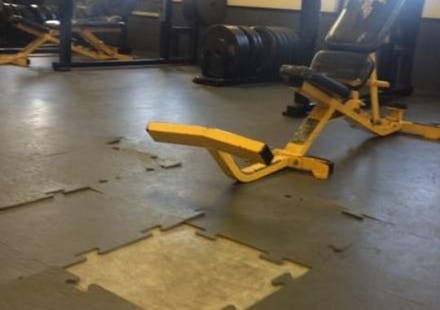For Grambling State Football, Boycotts Ultimately Came At a Cost

After nearly a week of player mutiny, a fired interim coach, boycotting of practices, and even a game forfeiture, the Grambling State Tigers football team has certainly raised nationwide awareness, eyebrows, and hefty support in their challenges to unhealthy and unfair playing conditions. But, as they discovered on Wednesday, their rebellion has come at a cost — a large one, too.
The players returned to practice on Monday and ended their protests, but Jackson State, who was forced to awkwardly hold homecoming for its fans and alumni without an opponent, plans to sue Grambling State for financial losses incurred (like $200,000 in ticket refunds, for starters):
On Tuesday evening, Jackson State's executive director of university communications, Eric Stringefellow issued a message to the school community that addressed the "unprecedented event" of the cancelled game, the "disappointing" nature of the circumstances, how the "JSU family was damaged," and how "The university intends to use litigation to be made whole for our direct and indirect financial losses."
For a school with the humble finances of only $6 million in athletics funding, the forfeiture was no small dent. You can't exactly blame the administration and Stringefellow for seeking reimbursement. "Jackson State University's and the city of Jackson's losses could be in the millions. It would be irresponsible for JSU to fail to pursue some redress," the letter concluded.
The real question, and conversation moving forward, will be whether the boycott was worth its ultimate cost. But looking at the photos of athletic facilities and listening to some of the reports emerging from Louisiana's famed Grambling, it is extremely difficult to argue, even in hindsight, that the players should never have rebelled.
If you've ever been privy to the Oregon Ducks football facilities, a photo of the Grambling State weight room will easily hurt your eyes. Let's not sugarcoat it — the place is a dump. Other photos show mold and mildew, decrepit hallways, and exposed piping in the ceilings. In addition to the lack of health and proper safety, moreover, the players' frustrations regarded neglect by the administration, failure to receive all their meals on road trips, and egregious bus travel to games as far away as Kansas City and Indianapolis.
The catalyst, according to USA Today, had been "a feeling they had been neglected and disrespected after the school fired [head coach Doug] Williams last month." And, the same report details, "The tipping point was apparently new flooring for the team's weight room. Williams raised the money and purchased the flooring without going through official channels."
Last Tuesday, emotions first bubbled over when players walked out of a meeting with the school president, the athletic director, the interim coach, and the student government president. On Wednesday, the entire team skipped practice against the school and its lack of acknowledgement. And on Friday afternoon, issues finally came to a head when players refused to board the buses for the game at Jackson State.
Regardless of the short-term effects of Jackson State's financial actions, it is undeniably important that the 2013 Grambling State football team has now forcefully sparked discussion on its playing conditions and treatment. The school is one of the most famous of the historically black colleges and universities and its football program is a time-honored tradition, having won 14 black college national titles.
The late, great College Football Hall of Fame coach Eddie Robinson led the Tigers from 1941-1997, and his name adorns the stadium. He is considered influential in not only helping to integrate the National Football League, but is largely credited with paving the way for the recent crop of black starting quarterbacks at the highest level. One of his players, James Harris, became the NFL's first black starting signal-caller in 1969. When Harris had doubted his future as a quarterback — a position virtually barred to blacks at the time — Robinson famously told him, "It's a position like any position. Ain't we playing football?"